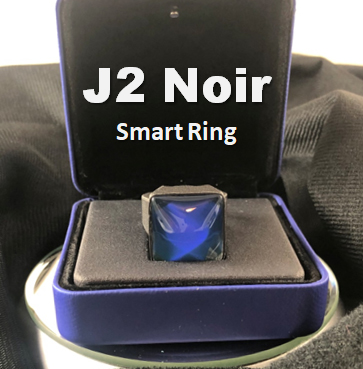Resilience Challenge 2022
|
The Resilience Suicide Prevention Study™ is a private and public research collaboration targeting suicide prevention among our military Vets. |

In the spring of 2021, we suddenly and without warning lost a member of the 2-Dooz family—our medical advisor, Dr. Sofia Jalilie. Sofia apparently and inexplicably took her own life, leaving us way too prematurely and in complete and utter shock. Her warmth and kind spirit were forever extinguished in what we imagine was a moment of weakness. We lost one of the brightest lights among us. We miss her deeply.
Dazed, confused and in an effort to make sense of something that can’t be made sense of, we decided to create something positive from our unfathomably tragic shared experience. At the end of last year and guided by our mission to develop socially conscious tech, we pledged to dedicate all of 2022 to our effort. The idea for the Resilience Campaign was born. And, within the campaign, the Resilience Challenge 2022 is an important first step in what will be a lengthy process of healing.
Stress, Mental Health and Deaths of Despair
Sofia’s medical practice put her on the front line in the war against SARS-CoV-2: the virus that is responsible for the ongoing COVID-19 Pandemic. Sofia and other essential workers literally bore the brunt of the pandemic’s attack, both directly and indirectly—inclusive of amplified stress, which the Centers for Disease Control (CDC) calls a widespread secondary health effect of the virus.
A pre-pandemic Gallup poll found that nearly eight in ten Americans admit to frequently or sometimes encountering stress in their daily lives. Per the CDC we now know that pandemic amplified stress affects everyone. Furthermore, the pandemic has increased all induced symptoms of stress, including headache, upset stomach, high blood pressure, high blood sugar, chest pain, anxiety and depression. Research has revealed that the latter two symptoms are corelated with higher suicide risk.
For calendar year 2020, the WellBeing Trust estimates that an additional 68,000 deaths of despair—deaths which are due to drugs, alcohol and suicide—were caused by the pandemic; establishing a definitive link between amplified chronic stress and increased suicidal ideation. To put the 68,000 excess deaths of despair into perspective, this number is greater than the total number of people who died from breast cancer in the U.S. in the same timeframe and is on par with the total number of casualties the U.S. suffered during the entirety of the American Revolution.
While deaths from suicide and / or despair are on the rise across all demographics, our research revealed that certain groups, inclusive of current and former members of our military, fare much worse. Per the 2019 VA’s Suicide Prevention Annual Report, veterans are more than 1.5 times more likely to die from suicide than the general U.S. population. Because of this, we decided to initially focus our attention there.
Resilience Suicide Prevention Study
The Merriam-Webster dictionary defines resilience as “an ability to recover from or adjust easily to misfortune or change.” Regarding suicide prevention, resilience can be defined as an ability to not choose a permanent solution for a temporary problem, in the midst of a personal crisis. Resilience is what allows one to patiently persevere through a present episode of personal adversity.
A spring of 2022 2-Dooz performed Google key words search confirmed that there is no shortage of advice for “how to become more resilient.” Our search returned 194 million results. While we only examined two-dozen of the returned ideas in detail, what we found is that all of the resilience suggestions appear to have the following in common, regardless of the number of articulated steps: (1) awareness, (2) focused attention, and (3) perseverance. Ironically, all three of these suggested steps are also common to stress management. Note that personal crisis—the kind which may lead to a higher risk of a death of despair—evokes a stress response. And suggests that better managing stress is a key to being more resilient.
Motivated by Sofia’s passing, cognizant of pandemic amplified stress, and guided by the VA Suicide Prevention Advisory Group, 2-Dooz is pursuing a large-scale multiyear study on the effect that chronic stress and acute stress respectively have on our military veterans regarding suicidal ideation. The Resilience Suicide Prevention Study will examine how chronic stress punctuated by acute stress during a personal crisis can increase a military veteran’s risk of a death of despair.
In the first stage of the study, targeted to start in early 2023, the stress levels of veteran volunteers will be monitored and correlated to their assessed anxiety, depression and suicide risk levels. A subsequent stage of the study is expected to test how biofeedback powered stress monitoring can be used as an adjunct tool within a highly personalized suicide prevention program. More specifically, biofeedback-based stress monitoring is expected to aid in awareness—a first step of a resilience protocol.
Resilience Challenge 2022
In 2016, the Journal of the American Medical Association (JAMA) summarized research which provides evidence that screening, followed up by treatment, can help to reduce symptoms of depression and lower suicide risk. As anxiety and depression are correlated to stress, the aim of the Resilience Campaign is to raise research funding needed to support a large-scale chronic stress study of military veterans. The findings of the study are expected to lay the foundation for the development of a personalized early warning system that forecasts if a Vet is at a higher risk of a death of despair; a tool with the potential to play a supporting role in the shift from suicide awareness to prevention.
In Sofia’s memory, the goal of Resilience Challenge 2022 is to secure funding for both Veteran remuneration (to compensate for time spent participating in the study) and for the first one hundred prototype Resilience Smart Rings, which will be used to independently and objectively collect stress level information from veterans participating in the Resilience Suicide Prevention study. The launch of the campaign will be during Suicide Prevention Awareness Month in September of 2022.
Resilience Challenge 2022 contributors can directly sponsor the participation of one or more veterans in the Resilience Suicide Prevention Study. A donation of 600 dollars to our Resilience Challenge 2022 fundraiser will directly sponsor the participation of single veteran in the Resilience Suicide Prevention Study. In addition to $300 in pay for participating in the study, the supplied smart ring will remain the property of each sponsored veteran. Alternatively, challenge contributors can make cash donations, in amounts as small as $10.00. The direct cash contributions will be pooled to purchase additional study equipment and will be used for participant remuneration. 100% of all sponsored devices and donated funds, excluding third party fees, will go to the research effort. For our part, 2-Dooz has pledged to directly sponsor all of the research and analysis personnel required to perform the multiple-year Resilience Suicide Prevention Study.
Our goal is to raise 60,000 dollars to cover the cost of study equipment and pay for 100 VA veteran participants in the study. Please join us by sponsoring 1 or more vets in this important research. Help us to discover preventative solutions which have the potential to save lives. We sincerely thank you for your support.
|
If you or someone you know is in crisis, please contact any of the following:
|
Emotion Mood Sensing Jewelry

Emotion Mood Sensing Jewelry is a featured 2-Dooz incubation project, which is sponsored by Tony Clark--founder & CEO of 2-Dooz and Chairman of the 2-Dooz Advisory Board. Inspired by our vision of the Emotive Internet, wherein biosensors and software algorithms combine to enable the real-time detection, recognition and sharing of human emotion, Emotion Mood Sensing Jewelry designs, develops, brands and sells high-end and ultra modern jewelry which is powered by Mood Sensing Sharing Device (MSSD) technology, as defined in US Patent No.9,064,390.
Emotion Mood Sensing Jewelry™ starts with something old and adds a large dose of today’s technology to make something that is altogether new. Emotion Mood Sensing Jewelry combines the circa 1970 mood stone with today's wireless, sensor and mobile apps technologies to define an entirely new wearable market segment.
Our Mood Sensing Smart Rings connect to phones, tablets and other similar devices to power an emerging category of software called emotive apps. Emotive apps better understand our needs and by doing so make our smart devices exponentially more useful. Example emotive apps include video games, which adjust in difficulty based on the emotional state of a player, and music players that dynamically change the playlist order based on mood. Regarding the latter, when the mood sharing ring signals that the wearer's mood has dipped, more upbeat, energetic music is played.
Each mood sensing jewelry design contains an MSSD, comprising a mood stone and an electronics subsystem (ES)—consisting of one or more biosensors, a microprocessor, memory and wireless connectivity. The MSSD provides Bluetooth® communication with paired mobile devices running emotive apps; and onboard sensors which allow the MSSD to sense an accompanying mood stone’s color / emotion state. Smaller than a quarter, our latest ES, version 2.x, is the brain that powers each of our mood sensing jewelry lines, including our newest J2 Mood Sensing Ring, which is targeted to makers and tech influencers. The ESv2.x was preceded by the ESv1, which was the first to power our proof-of-concept Mood Sensing Bracelets in 2015.
Our latest creation, the J2 Smart Ring, optionally pairs to our J2StressMonitor App, to track and alert a wearer of their current stress level. When in the foreground, the J2StressMonitor App echos the J2 Smart Ring's mood stone color and presents a message that is indicative of the wearer's stress. And, when the J2StressMonitor App is in the background, system notifications alert the user to the occurrence of "High" levels of stress. This enables the earlier detection, quicker mitigation and faster resolution of stress.
|
J2 Smart Ring and J2StressMonitor App Demo |
Asteame Nipple Guard
Exclusively sold on Amazon, the Asteame Nipple Guard is a reinforced bandage which is used postoperatively for nipple reconstruction and inverted nipple surgery. Based on definitive clinical testing, performed at Stanford University, the Nipple Guard is the standard of care for postoperative nipple surgery use.
 |
|
|
Self Asteame Video Magazine discusses Stanford University's clinical trial of the Nipple Guard -- defining the device as the postoperative standard of care for nipple reconstruction. |